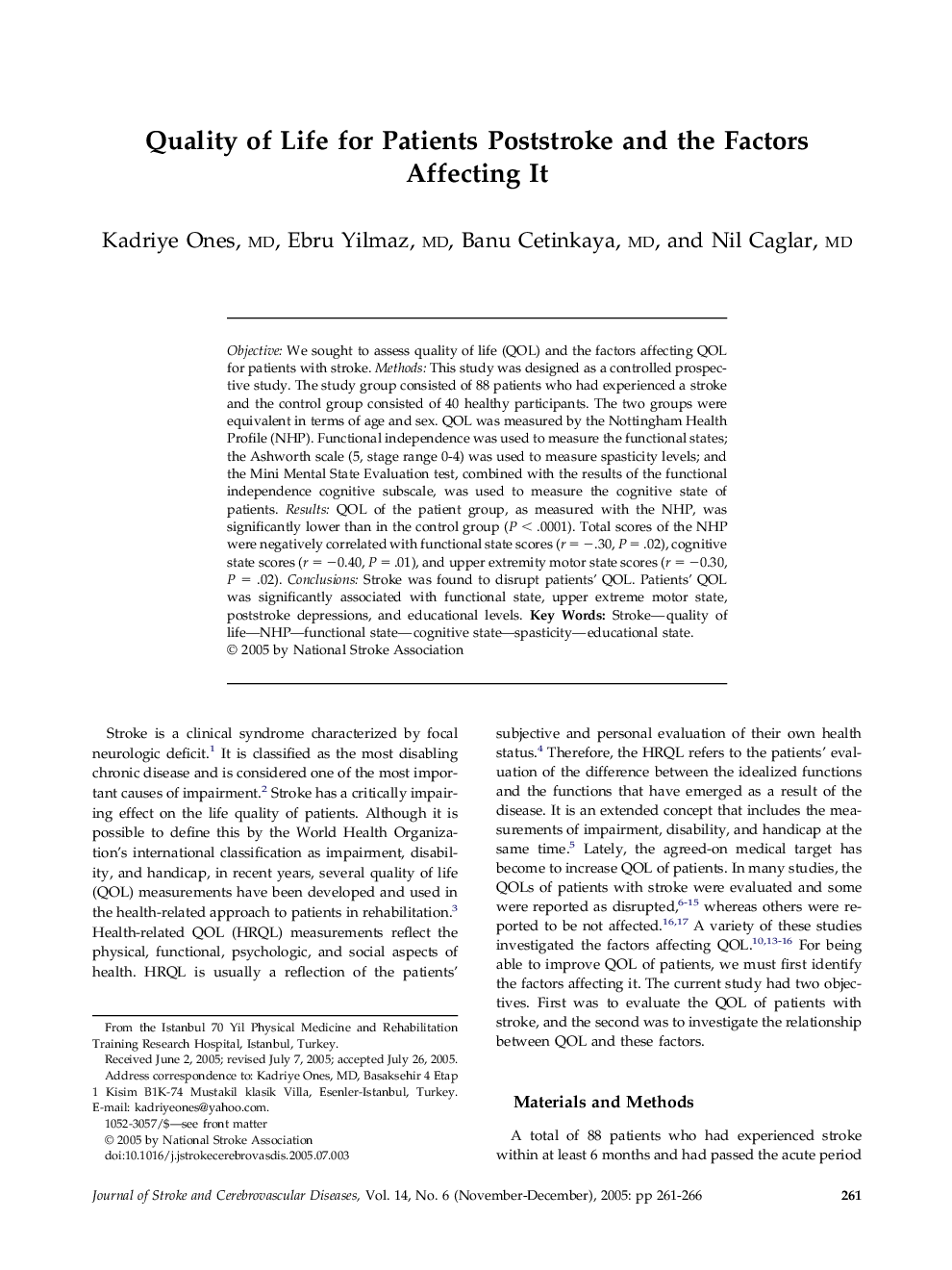| Article ID | Journal | Published Year | Pages | File Type |
|---|---|---|---|---|
| 9078148 | Journal of Stroke and Cerebrovascular Diseases | 2005 | 6 Pages |
Abstract
Objective: We sought to assess quality of life (QOL) and the factors affecting QOL for patients with stroke. Methods: This study was designed as a controlled prospective study. The study group consisted of 88 patients who had experienced a stroke and the control group consisted of 40 healthy participants. The two groups were equivalent in terms of age and sex. QOL was measured by the Nottingham Health Profile (NHP). Functional independence was used to measure the functional states; the Ashworth scale (5, stage range 0-4) was used to measure spasticity levels; and the Mini Mental State Evaluation test, combined with the results of the functional independence cognitive subscale, was used to measure the cognitive state of patients. Results: QOL of the patient group, as measured with the NHP, was significantly lower than in the control group (P < .0001). Total scores of the NHP were negatively correlated with functional state scores (r = â.30, P = .02), cognitive state scores (r = â0.40, P = .01), and upper extremity motor state scores (r = â0.30, P = .02). Conclusions: Stroke was found to disrupt patients' QOL. Patients' QOL was significantly associated with functional state, upper extreme motor state, poststroke depressions, and educational levels.
Related Topics
Health Sciences
Medicine and Dentistry
Clinical Neurology
Authors
Kadriye MD, Ebru MD, Banu MD, Nil MD,
